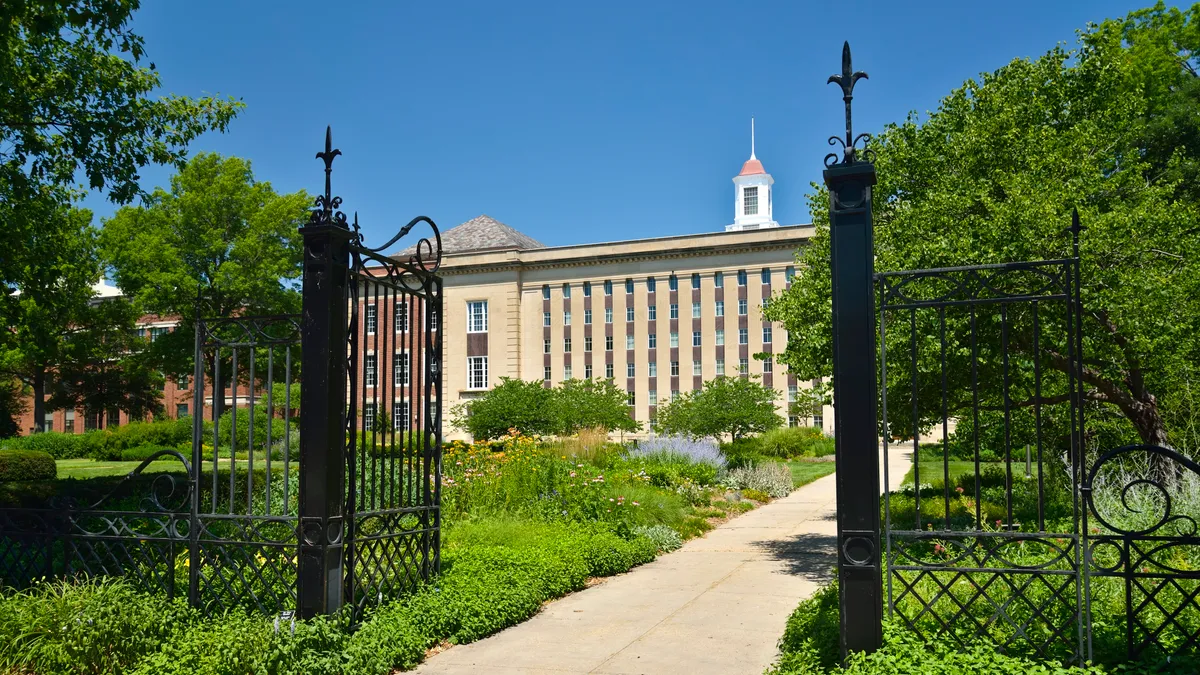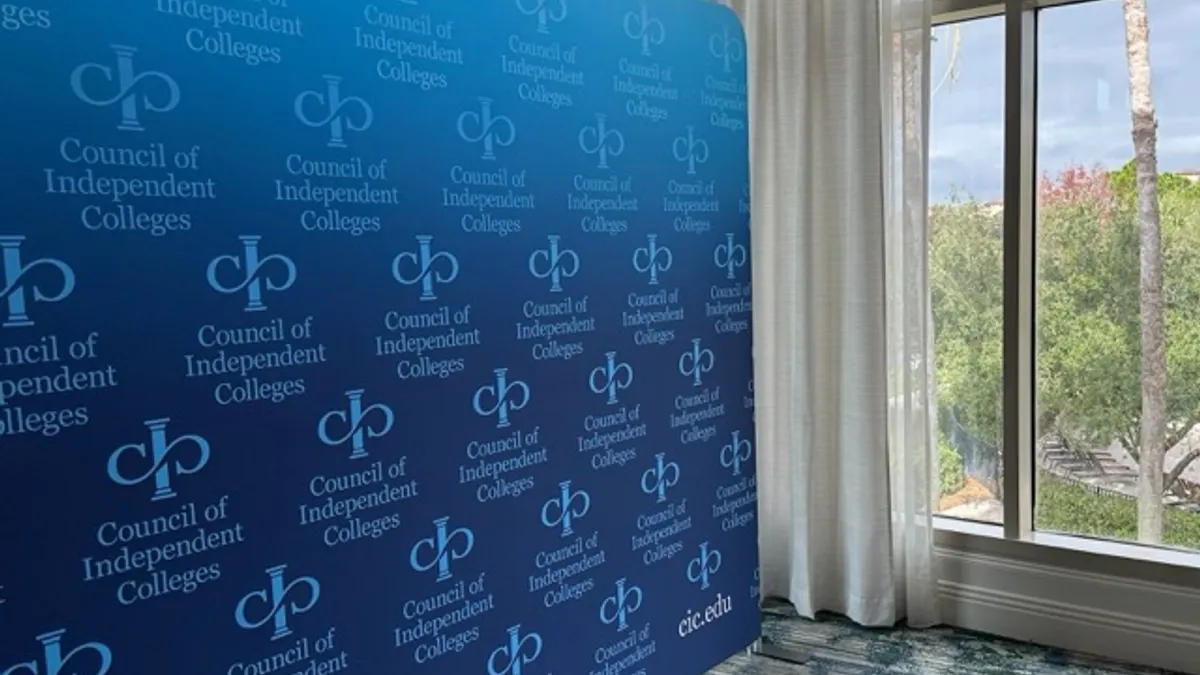Dive Brief:
- The University of Nebraska-Lincoln plans to cut $27.5 million from its budget — possibly including eliminating or merging academic programs — by the end of the year to address an ongoing structural deficit.
- "Despite our best efforts to live within our means, our revenue has not kept pace with expenses," UNL Chancellor Rodney Bennett said in a campus message on Monday. He attributed the shortfall to insufficient state funding and declining net tuition revenue combined with high inflation.
- The flagship university is among the many higher education institutions cutting their budgets amid an uncertain financial landscape. UNL will also extend its hiring freeze for at least the second time and likely offer employees a voluntary separation package this fall, Bennett said.
Dive Insight:
A planning committee composed of administrators, faculty and student representatives plans to discuss potential budget cuts this week. Bennett will then take the committee's recommendations and propose a final budget plan to the head of the University of Nebraska system by the end of October, he said.
The plan may recommend degree program cuts or mergers that will allow UNL to capitalize on its "existing strengths," the chancellor said.
Moving forward, the university will prioritize growing extramural grants and contracts and increasing tuition revenue through higher enrollment and student retention, he said.
UNL officials also hope to see additional revenue from a tuition hike approved by the University of Nebraska system’s board in June.
In-state undergraduate tuition at UNL will increase from $277 to $291 per credit hour for the 2025-26 academic year. For out-of-state students, the cost will rise from $888 to $932.
In the same vote approving the tuition increase, the system board cut more than $20 million from its budget.
Like Bennett, the system board cited "a legislative session in which the university received modest funding increases that do not fully cover inflationary pressures, rising employee benefit costs or strategic investments."
The University of Nebraska relies heavily on state funding. In the fiscal 2024-25 year, a fifth of the system's operating budget — just under $700 million — came from state appropriations.
However, recent increases to the state's higher education funding have been nominal and have not kept pace with inflation.
Earlier this year, Nebraska’s Legislature raised the University of Nebraska's state funding by 1.25% over the next two years. The bump fell well short of inflation and the system's requested increase of 3.5%.
But that's still a significant improvement over Nebraska Gov. Jim Pillen's initial proposal. Pillen, who served as a system regent for a decade, sought to cut the system's funding by 2%, which would have amounted to a loss of $14.3 million.
On Wednesday, Bennett referenced the series of austerity measures the university has undertaken in recent years and expressed hope that the next round of cuts could help UNL achieve operational stability.
"I want to realize a future for UNL in which faculty and staff are not repeatedly asked to do the same quality and amount of work with fewer resources — but rather are provided the support and opportunity to excel beyond current levels of success," he said









